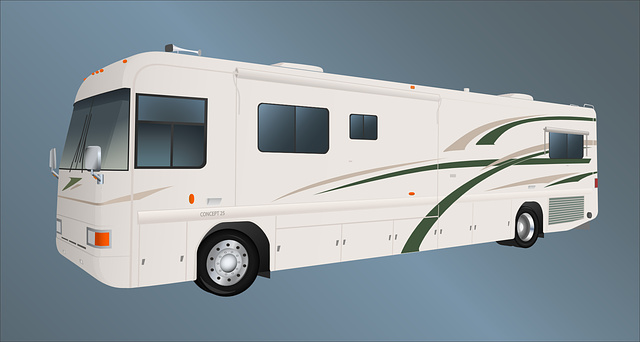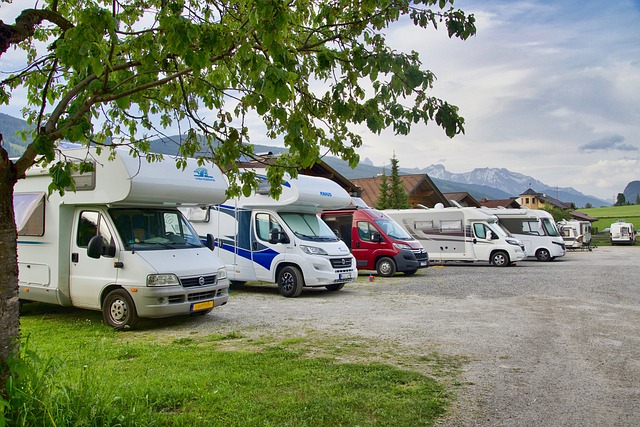RV batteries are crucial for the power supply of recreational vehicles, supporting both onboard systems and essential appliances. To maintain their reliability, it's important to address common issues such as weak charge, sulfation, overcharging, undercharging, and terminal corrosion. Regularly monitoring voltage with a multimeter and checking charging settings can help prevent these problems. RV batteries naturally degrade over time due to electrochemical processes and environmental conditions, so it's essential to follow proper charging protocols, monitor battery temperature, and prevent deep discharges to prolong their lifespan. For lead-acid batteries, this means preventing the erosion of active materials like lead dioxide and sponge lead, while for lithium-ion batteries, it involves mitigating electrolyte decomposition and the growth of the SEI layer. Troubleshooting a battery that's not retaining charge should start with voltage measurement during a full charge, followed by addressing sulfation or severe discharge if necessary. Storing batteries properly and topping off water levels for lead-acid batteries are key maintenance tasks, as is using a battery maintainer or charger with desulfization capabilities. Regular cleaning of terminals and connections and avoiding full discharges help ensure the longevity and efficiency of your RV battery, leading to smoother travel experiences.
RV enthusiasts often encounter various battery issues during their travels. Understanding common problems with RV batteries and effective solutions is crucial for maintaining a reliable power supply on the road. This article delves into the science behind RV battery degradation, offering insightful step-by-step fixes and essential maintenance tips to extend your RV’s battery life. Whether you’re an experienced RVer or new to the lifestyle, mastering RV battery care is a boon for your adventures.
- Identifying Common RV Battery Problems
- The Science Behind RV Battery Degradation
- Step-by-Step Fixes for RV Batteries
- Maintenance Tips to Extend RV Battery Life
Identifying Common RV Battery Problems

When it comes to recreational vehicles, RV batteries play a pivotal role in providing the necessary power for both onboard systems and essential appliances during travel. Identifying common RV battery problems is crucial for maintaining the reliability of your RV’s electrical setup. One prevalent issue is a weak or failing battery charge. This can manifest as diminished power output, which might lead to the inability to start the RV, or insufficient power for lighting and small appliances. To assess this, regularly check the voltage level of your batteries using a multimeter. Another common problem is sulfation, which occurs when sulfur crystals form on the battery plates, reducing the battery’s ability to hold a charge. This can be mitigated by ensuring the battery is not left discharged for extended periods and by maintaining proper charging practices.
Overcharging or undercharging are also frequent RV battery issues. Overcharging can cause excessive gassing, leading to water loss within the cells and potentially shortening the battery’s lifespan. Conversely, undercharging can result from a charger that is not set correctly for the specific type of battery you have, or from an inefficient charging system. Regular maintenance includes inspecting the charge settings on your charger and ensuring it matches the requirements of your RV batteries. Additionally, temperature extremes can impact battery performance; both high and low temperatures can reduce battery capacity. It’s important to park your RV in a location that offers some protection from harsh weather conditions when possible. Lastly, corrosion on terminals and cables can cause connection issues leading to poor performance or complete battery failure. Regular cleaning and inspection of these components are necessary to ensure a good electrical connection and optimal battery function.
The Science Behind RV Battery Degradation

RV batteries, typically lead-acid types or more modern lithium ion varieties, are subject to degradation over time due to several factors. The science behind this process involves electrochemical reactions that occur within the battery cells. During charge and discharge cycles, the active materials in the battery undergo physical and chemical changes. In lead-acid batteries, for instance, the lead dioxide (PbO2) at the positive plate and sponge lead (Pb) at the negative plate react with sulfuric acid (H2SO4) in the electrolyte to produce electricity. Over repeated use, these materials lose some of their active surface area, reducing the battery’s capacity to hold a charge. This reduction in surface area is often irreversible and contributes to the battery’s degradation.
In lithium-ion RV batteries, the lithium ions travel between the cathode and anode during charging and discharging. Degradation in these batteries can be attributed to several factors, including electrolyte decomposition, SEI (Solid Electrolyte Interphase) layer growth, and physical or chemical changes in the electrode materials. Exposure to high temperatures, for example, can cause the electrolyte to break down, leading to a decrease in ionic conductivity and a loss of battery efficiency. Additionally, the lithium metal anode can undergo what’s known as ‘lithium plating/stripping,’ where lithium metal deposits onto the anode during charging, which can degrade the battery over time if not managed properly. To mitigate these issues, it’s crucial to maintain optimal charging practices, monitor battery temperature, and avoid deep discharges that can further compromise the integrity of RV batteries. Regular maintenance, including topping up electrolyte levels and ensuring connections are clean and tight, can also help extend the life of your RV batteries.
Step-by-Step Fixes for RV Batteries

When troubleshooting issues with RV batteries, a systematic approach is often the most effective. If your RV battery isn’t holding a charge as it should, begin by checking the battery voltage while the vehicle is running and the battery is fully charged. Use a reliable multimeter to measure the voltage; for a 12-volt system, you should see around 12.6 to 12.8 volts. If the voltage is below this range, it could indicate that the battery is sulfated or has another deep discharge issue. To address this, fully charge the battery over several days using a proper charging system designed for RV batteries, which can help to restore the battery’s capacity.
Another common problem with RV batteries is a low or dead battery after prolonged storage. This typically happens due to self-discharge during storage periods. To prevent this, disconnect the battery and store it in a cool, dry place. If the battery is already depleted, recharging may take longer than usual. Connect the battery to a charger designed for RV batteries and ensure that it’s set to the correct amp setting. Avoid overcharging, as this can damage the battery. Once the battery holds a charge, regularly maintain it by occasionally recharging if not in use, especially if stored in a hot environment where self-discharge rates are higher. Regular maintenance, including checking water levels in flooded lead-acid batteries and topping off with distilled water, is crucial for their longevity. By following these step-by-step fixes, you can effectively address common RV battery issues and extend the life of your power source.
Maintenance Tips to Extend RV Battery Life

To ensure your RV battery serves you faithfully over time, regular maintenance is key. Consistently check the water levels in flooded lead-acid batteries, adding distilled water as necessary to maintain proper electrolyte concentration. Regular charging after trips prevents sulfation, a common issue where sulfur accumulates on the battery plates, impairing its ability to hold a charge. Store your RV battery properly when not in use, keeping it charged and in a cool, dry place to prevent degradation. Additionally, invest in a quality battery maintainer or charger with a desulfization mode to rejuvenate batteries that have been undercharged or neglected. Monitor the battery’s state of charge regularly, avoiding complete discharge, which can shorten its lifespan. By following these maintenance tips, you can significantly extend the life of your RV battery and ensure it remains reliable for your adventures. Regularly inspect the battery terminals and connections for corrosion, cleaning them with a baking soda paste if needed to maintain optimal conductivity. Proper maintenance not only extends the life of your RV battery but also enhances its performance, making every journey more enjoyable and stress-free.
RV batteries play a critical role in powering your recreational vehicle, and understanding common issues they face is essential for any RVer. This article has shed light on the science behind RV battery degradation, offering clear explanations and practical solutions to address these challenges. By identifying typical problems early and employing the step-by-step fixes provided, you can effectively maintain your RV’s power supply. Regular maintenance, as detailed in our maintenance tips section, will help extend the life of your RV battery. Remember to keep a close eye on your battery’s performance and address any issues promptly to ensure uninterrupted adventure travel. With these strategies, your RV battery can reliably support all your power needs, allowing you to enjoy the freedom and comfort of RV living to the fullest.
